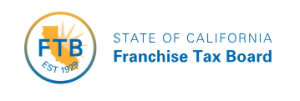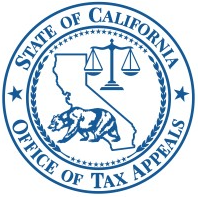Pillsbury SALT partners Carley Roberts, Zachary Atkins and Aruna Chittiappa will be presenting at the 32nd Annual State and Local Tax Forum taking place Oct. 27–29, 2025.

Pillsbury SALT partners Carley Roberts, Zachary Atkins and Aruna Chittiappa will be presenting at the 32nd Annual State and Local Tax Forum taking place Oct. 27–29, 2025.

After nearly a decade in development, the California Franchise Tax Board (FTB) has finalized its amended market-based sourcing regulation under Regulation Section 25136-2, which governs the sourcing of receipts from services and intangible property.
The regulation was approved by the Office of Administrative Law and filed with the Secretary of State on August 27, 2025. The revised rules will apply to tax years beginning on or after January 1, 2026. Among the most significant changes to the regulation are:

The California Attorney General has confirmed the Office of Tax Appeals (OTA) may decline to apply a tax regulation in a taxpayer appeal if it conflicts with the relevant statute. OTA must afford appropriate deference to the issuing agency, but its authority extends to setting aside the regulation for that appeal. OTA lacks authority to invalidate or repeal the regulation more broadly or to apply its conclusions outside the specific appeal.
The California Franchise Tax Board (FTB) announced it has initiated the formal rulemaking process to amend Regulation Section 25136-2, which governs the sourcing of receipts from services and intangible property. The proposed changes would apply to taxable years beginning on or after January 1, 2024. Continue Reading ›
Continue Reading ›
Pillsbury SALT partner Robert P. Merten III will present at a tax policy seminar hosted by the California Lawyers Association on October 18.

 The May Revision of California’s 2024-2025 state budget seeks to block refund claims, worth approximately $1.3 billion for historical tax years, and $200 million per year going forward, by codifying informal guidance recently rejected by the Office of Tax Appeal’s (OTA) decision in the Matter of the Appeal of Microsoft Corporation & Subsidiaries (Appeal of Microsoft) and by granting the Franchise Tax Board’s (FTB) quasi-legislative rulemaking authority exempt from the procedural protections afforded by the Administrative Procedure Act. The May Revision also proposes to suspend net operating loss (NOL) deductions and limit tax credit utilization to $5 million per year for tax years 2025-2027; however, the legislature proposes to apply the changes to tax years 2024-2026 instead.
The May Revision of California’s 2024-2025 state budget seeks to block refund claims, worth approximately $1.3 billion for historical tax years, and $200 million per year going forward, by codifying informal guidance recently rejected by the Office of Tax Appeal’s (OTA) decision in the Matter of the Appeal of Microsoft Corporation & Subsidiaries (Appeal of Microsoft) and by granting the Franchise Tax Board’s (FTB) quasi-legislative rulemaking authority exempt from the procedural protections afforded by the Administrative Procedure Act. The May Revision also proposes to suspend net operating loss (NOL) deductions and limit tax credit utilization to $5 million per year for tax years 2025-2027; however, the legislature proposes to apply the changes to tax years 2024-2026 instead.
 The California Office of Tax Appeals (OTA), in a decision marked “not precedential” in the Matter of the Appeal of Microsoft Corporation & Subsidiaries, held 100 percent of repatriated dividends under the Tax Cuts and Jobs Act (TCJA) must be included in the taxpayer’s sales factor denominator.
The California Office of Tax Appeals (OTA), in a decision marked “not precedential” in the Matter of the Appeal of Microsoft Corporation & Subsidiaries, held 100 percent of repatriated dividends under the Tax Cuts and Jobs Act (TCJA) must be included in the taxpayer’s sales factor denominator.
 SALT partners Zachary Atkins and Evan Hamme will speak at COST’s upcoming Spring Conference.
SALT partners Zachary Atkins and Evan Hamme will speak at COST’s upcoming Spring Conference.
On November 7, 2023, the Supreme Judicial Court of Maine held a taxpayer’s receipts from the performance of pharmacy benefit management (PBM) services should be apportioned using a look-through approach. Specifically, the court held such services receipts should be apportioned to the state where the prescription drug is dispensed by retail pharmacies to individual members (i.e., the market member method), rather than the state where the taxpayer’s client’s primary commercial and administrative headquarters is located (i.e., the market client method).

 In the Appeal of Southern Minnesota Beet Sugar Cooperative (2023-OTA-342P) (Beet Sugar), the California Office of Tax Appeals (OTA) issued a precedential opinion holding the California Franchise Tax Board (FTB) is not entitled to apply its FTB Legal Ruling 2006-01 (Apr. 28, 2006) to prohibit taxpayers from including in their apportionment factors property, payroll, and sales that generated statutorily deductible income. The OTA’s guidance on the FTB’s interpretation and application of Legal Ruling 2006-01 in this opinion also has implications beyond the specific issue in Beet Sugar, as the FTB has been attempting to expand the application of the limited legal ruling to other inapplicable situations. For example, an opinion by the OTA in the Appeal of Microsoft Corporation & Subsidiaries (OTA Case Number 21037336) is also anticipated to be issued soon, which appeal concerns whether the FTB is entitled to apply Legal Ruling 2006-01 to prohibit taxpayers from including in their apportionment sales factors statutorily deductible foreign dividend amounts.
In the Appeal of Southern Minnesota Beet Sugar Cooperative (2023-OTA-342P) (Beet Sugar), the California Office of Tax Appeals (OTA) issued a precedential opinion holding the California Franchise Tax Board (FTB) is not entitled to apply its FTB Legal Ruling 2006-01 (Apr. 28, 2006) to prohibit taxpayers from including in their apportionment factors property, payroll, and sales that generated statutorily deductible income. The OTA’s guidance on the FTB’s interpretation and application of Legal Ruling 2006-01 in this opinion also has implications beyond the specific issue in Beet Sugar, as the FTB has been attempting to expand the application of the limited legal ruling to other inapplicable situations. For example, an opinion by the OTA in the Appeal of Microsoft Corporation & Subsidiaries (OTA Case Number 21037336) is also anticipated to be issued soon, which appeal concerns whether the FTB is entitled to apply Legal Ruling 2006-01 to prohibit taxpayers from including in their apportionment sales factors statutorily deductible foreign dividend amounts.